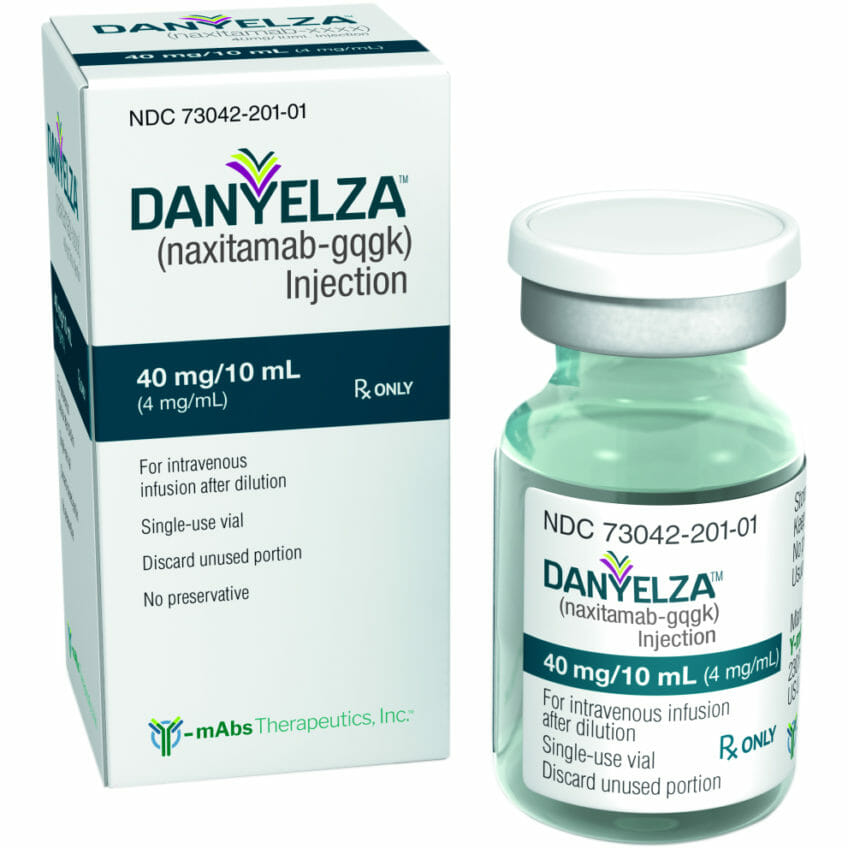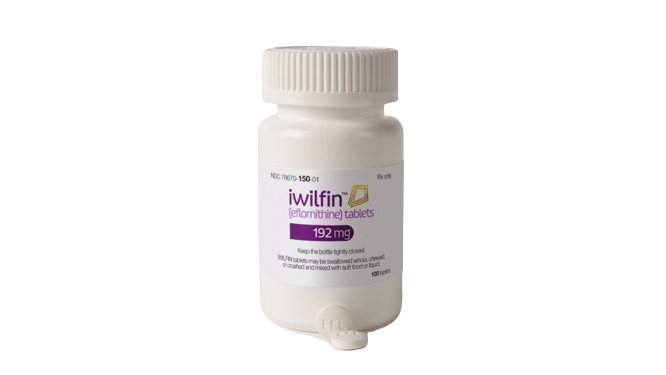Danyelza (naxitamab-gqgk) vs Iwilfin (eflornithine)
Danyelza (naxitamab-gqgk) vs Iwilfin (eflornithine)
Danyelza (naxitamab-gqgk) is an anti-GD2 monoclonal antibody approved for the treatment of high-risk neuroblastoma in pediatric and adult patients, which is a type of cancer that develops from immature nerve cells and typically affects children. It is administered via an intravenous infusion and works by targeting and binding to the GD2 antigen on neuroblastoma cells, facilitating the immune system to destroy these cancer cells. In contrast, Iwilfin (eflornithine), which is not a cancer medication, is used for the treatment of African trypanosomiasis, also known as sleeping sickness, caused by parasites; it works by inhibiting an enzyme necessary for the parasite's survival and is administered intravenously or intramuscularly. For a patient deciding between these medications, the choice would be based on their specific diagnosis, as Danyelza is specific for certain types of cancer, while Iwilfin is used for a parasitic infection, and they are not interchangeable or directly comparable in terms of their use.
Difference between Danyelza and Iwilfin
| Metric | Danyelza (naxitamab-gqgk) | Iwilfin (eflornithine) |
|---|---|---|
| Generic name | Naxitamab-gqgk | Eflornithine |
| Indications | High-risk neuroblastoma | Hirsutism in women |
| Mechanism of action | GD2-binding monoclonal antibody | Irreversible inhibitor of ornithine decarboxylase |
| Brand names | Danyelza | Vaniqa (topical), Ornidyl (injectable) |
| Administrative route | Intravenous | Topical, Intravenous |
| Side effects | Pain, hypertension, infusion-related reactions | Stinging skin, rash, erythema |
| Contraindications | Hypersensitivity to naxitamab-gqgk or its excipients | Hypersensitivity to eflornithine or its excipients |
| Drug class | Monoclonal antibody | Decarboxylase inhibitor |
| Manufacturer | Y-mAbs Therapeutics, Inc. | Various, including Allergan (for Vaniqa) |
Efficacy
Danyelza (naxitamab-gqgk) for Neuroblastoma
Danyelza (naxitamab-gqgk) is a targeted immunotherapy approved by the U.S. Food and Drug Administration (FDA) for the treatment of high-risk neuroblastoma in the bone or bone marrow that has not fully responded to or has returned after previous treatment. Neuroblastoma is a type of cancer that most commonly affects children and arises from neuroblasts, a kind of nerve cell. Danyelza works by binding to the GD2 antigen on neuroblastoma cells, which is highly expressed in most neuroblastoma tumors, and it recruits the body's immune system to fight the cancer cells.
The efficacy of Danyelza was evaluated in clinical trials where it was administered in combination with granulocyte-macrophage colony-stimulating factor (GM-CSF). The results demonstrated a significant improvement in the response rate for patients with relapsed or refractory neuroblastoma. In these studies, patients treated with Danyelza showed a combined overall response rate, which includes both partial and complete responses, indicating a reduction in tumor size or complete disappearance of the tumor in a significant number of patients.
Iwilfin (eflornithine) for Neuroblastoma
Iwilfin (eflornithine), while not primarily indicated for the treatment of neuroblastoma, has been investigated for its potential use in this condition. Eflornithine is an irreversible inhibitor of ornithine decarboxylase, an enzyme critical for cell division and growth. The rationale behind its use in neuroblastoma is based on the hypothesis that inhibiting this enzyme could slow down or stop the growth of rapidly dividing cancer cells. Research into the efficacy of eflornithine for neuroblastoma is ongoing, and it is considered an off-label use unless specifically approved by regulatory authorities for this indication.
Studies on eflornithine for neuroblastoma have shown mixed results, and more research is needed to conclusively determine its efficacy for this particular cancer. Clinical trials are essential to establish the safety and effectiveness of eflornithine in treating patients with neuroblastoma, especially in comparison to other treatments. Until such trials are completed and results are published, the use of eflornithine for neuroblastoma remains experimental and should be considered within the context of clinical research or a part of a comprehensive treatment plan under the guidance of a healthcare professional.
Regulatory Agency Approvals
Danyelza
-
Food and Drug Administration (FDA), USA

Iwilfin
-
Food and Drug Administration (FDA), USA

Access Danyelza or Iwilfin today
If Danyelza or Iwilfin are not approved or available in your country (e.g. due to supply issues), you can access them via Everyone.org.
How it works

Make an enquiry
Choose the medicine you want to buy, answer a couple of questions, and upload your prescription to speed things up. We’ll get back to you within 24 hours.


Make an enquiry
Choose the medicine you want to buy, answer a couple of questions, and upload your prescription to speed things up. We’ll get back to you within 24 hours.


Breeze through the paperwork
We'll guide you through the required documents for importing unapproved medicine, ensuring you have all the necessary information.


Get a personalized quote
We’ll prepare a quote for you, including medicine costs and any shipping, administrative, or import fees that may apply.


Receive your medicine
Accept the quote and we’ll handle the rest - sourcing and safely delivering your medicine.

Some text on this page has been automatically generated. Speak to your physician before you start a new treatment or medication.
Let's talk
If you have any questions, call us or send us a message through WhatsApp or email:
Contact us




